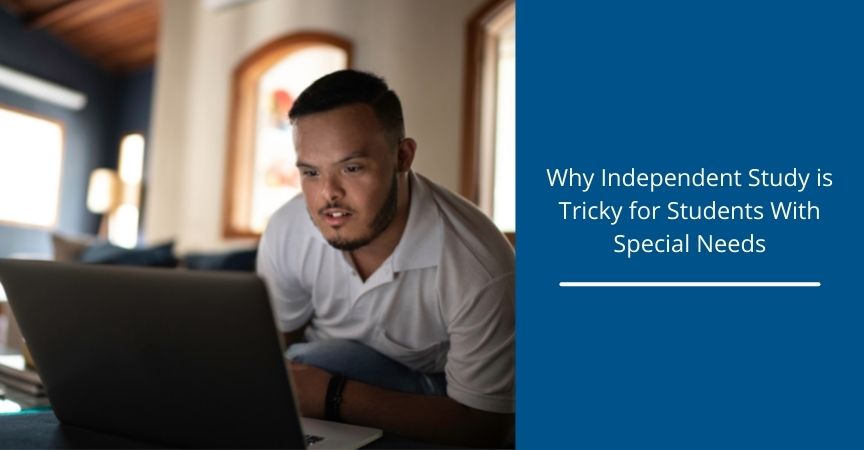As California prepares to go back to school, many parents with special needs children are wondering what their options are this year for virtual learning. Some school districts plan to continue offering distance learning, while others are conducting most classes in person and only providing independent study as an option for virtual learning.
Parents with special needs children should be aware that distance learning and independent study are not the same thing, and that the latter might not be appropriate for their child. It is important to understand what each offers, and what the most realistic options for your child are based on their disability and education needs.
The Differences: Distance Learning vs. Independent Study
According to Disability Rights California, distance learning is legally defined as “instruction when the student and instructor are in different locations, with students under the general supervision of a certificated employee of a responsible educational agency.”
Distance learning, such as the kind school districts have implemented during the COVID-19 pandemic, involves students learning from their regular curriculum in a setting that is physically separate from their teachers. Over the last 18 months, many schools have implemented distance-learning tech platforms through which students complete assignments, watch lectures, and access materials.
Independent study, on the other hand, involves less oversight from teachers. The concept was created decades ago, to help children who couldn’t attend a regular school schedule (e.g., child actors). With independent study, students get a packet of work for the entire school week and are expected to complete it at home, without much supervision from a teacher. It typically requires more involvement from parents and doesn’t necessarily meet the requirements of a free appropriate public education (FAPE).
Right now, some districts in California are only offering independent study as an alternative to in-classroom learning. The problem with this is that children with special needs who lack the cognitive capacity to work on their own at home are at a huge disadvantage when it comes to independent study. If a child is on the moderate to severe parts of the spectrum, independent study will not be a viable option for them.
What Parents Can Do
First and foremost, parents should hold an Individualized Education Plan (IEP) meeting with the school. California’s Senate Bill 98 requires all IEPs to include a description of how the IEP will be provided under emergency conditions. Public health orders, such as those mandated around COVID-19, are considered part of these emergency conditions.
Because of that, parents and the IEP team should work together to find a way to get the appropriate services to the child with special needs, even if the child has to learn at home or in a separate classroom because they are physically unable to wear a mask. For example, a child with special needs may need a one-to-one aide provided by the school district. Alternatively, the child may need special technology or other services to assist with the level of education needed to qualify as a FAPE.
If the school does not have a plan in place for your special education child, contact your school superintendent or state department of education immediately.
In some cases, it may be necessary to get the assistance of an experienced education rights attorney. The Law Office of Jennifer Chang believes in protecting students’ rights to a free and appropriate education under both federal and state laws. If your child is eligible to receive special education and is not getting the appropriate services or accommodations, we are here to help. Please reach out to her today or call (323) 931-5270 to discuss your case.
